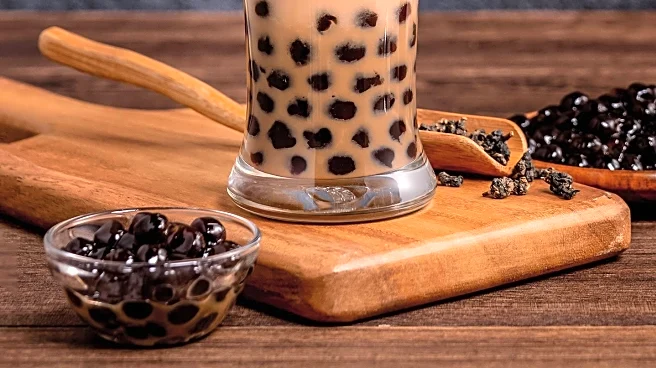What's Happening?
Consumer Reports has tested boba pearls from popular brands, including Gong Cha, Kung Fu Tea, Trader Joe’s, and WuFuYuan, for heavy metals such as lead, arsenic, cadmium, and mercury. While none of the products exceeded safety thresholds, some contained concerning levels of lead. Experts recommend treating bubble tea as an occasional indulgence rather than a daily habit. The U.S. bubble tea market is expanding rapidly, with over 6,600 shops nationwide, and is expected to double by 2028. The global bubble tea market was valued at $2.63 billion in 2024 and is projected to reach $4.78 billion by 2032.
Why It's Important?
The presence of lead in bubble tea products poses potential health risks, particularly for young children and pregnant women. Lead exposure can lead to long-term health issues such as high blood pressure, cardiovascular problems, and kidney damage. As the bubble tea market continues to grow, consumers need to be aware of these risks and consider moderating their consumption to minimize lead exposure. The findings underscore the importance of food safety standards and consumer awareness in the rapidly expanding bubble tea industry.
What's Next?
Consumer Reports advises consumers to treat bubble tea as an occasional treat due to the lead levels found in some products. The organization bases its 'level of concern' on California Proposition 65, which sets the maximum allowable dose levels for lead at 0.5 micrograms per day. Trader Joe's has discontinued its Instant Boba Kit, which had the highest lead levels among the tested products. Consumers are encouraged to monitor their overall lead exposure from various food sources and ensure adequate intake of key nutrients to mitigate health risks.










